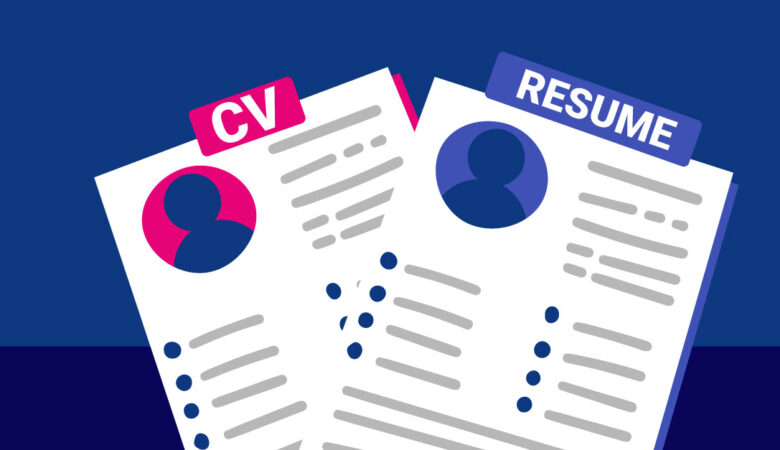The European Union (EU) is a unique political and economic union of 27 member states spanning much of the European continent. With a combined population of nearly 450 million and a single currency (the euro) used by 20 of those countries, the EU offers unparalleled freedom of movement, work, and residence for its citizens. For many non-EU nationals, obtaining EU citizenship is a life-changing opportunity—granting access to high-quality social services, world-class education, and a single market of over €15 trillion GDP. In this comprehensive guide, we’ll walk you through the main pathways to becoming an EU citizen, the eligibility criteria, the application process, and the benefits of holding an EU passport.
1. What Is EU Citizenship?
EU citizenship, conferred by holding the nationality of any EU member state, goes beyond a national passport. It guarantees:
- Freedom of movement and residence in any EU country.
- The right to work, study, and access social benefits across the EU.
- The ability to vote and stand in local and European Parliament elections.
- Consular protection from any EU embassy when abroad in non-EU countries.
These rights make an EU passport one of the most powerful travel documents worldwide, granting visa-free or visa-on-arrival access to over 180 countries.
2. Why Become an EU Citizen?
There are compelling reasons to pursue EU citizenship:
Unrestricted Travel & Work: Live, work, or retire anywhere in the EU without needing a work permit.
High Quality of Life: Benefit from universal healthcare, free or low-cost higher education, and strong social safety nets.
Economic Opportunities: Access the EU single market—one of the largest economies globally—without trade or hiring barriers.
Political Rights: Vote in European Parliament elections and influence EU-wide policies.
Consular Backup: Receive assistance from any EU embassy if your home country lacks diplomatic presence.
By comparison, many non-EU nationals face restrictive visas, limited work rights, and higher tuition fees. EU nationality removes those barriers.
3. Main Pathways to EU Citizenship
There are four primary routes to acquiring EU citizenship:
| Pathway | Description | Typical Requirements |
|---|---|---|
| Descent / Jus Sanguinis | Citizenship by birth to a parent (or grandparent) who is an EU national—regardless of place of birth. | Proof of parent’s/grandparent’s nationality; vital records. |
| Naturalization | Citizenship granted after legally residing in an EU country for a continuous period (usually 5–10 years), plus language and integration requirements. | 5–10 years residence; language test; clean criminal record. |
| Marriage / Family | Citizenship through marriage to an EU citizen, typically after a shorter residency (2–5 years) and proof of genuine relationship. | Married ≥3 years; residence; joint documentation. |
| Special Programs | Fast-track or investment citizenship (Golden Visa) schemes in countries like Malta, Portugal, or Greece—via real estate investment or job creation. | Capital investment (e.g. €250 K+); clean record. |
Below, we’ll examine each route in detail.
3.1 Citizenship by Descent (Jus Sanguinis)
Many EU countries—particularly Ireland, Italy, Poland, and Portugal—allow individuals to claim citizenship if they can prove descent from an EU national parent or grandparent.
Ireland: If you have at least one Irish-born grandparent, you can register in the Foreign Births Register. Once registered, you immediately become an Irish (and thus EU) citizen.
Italy: Under “Unlimited Jure Sanguinis,” you can claim citizenship through an Italian-born ancestor, provided no ancestor was ever naturalized before the next descendant’s birth.
Poland: Individuals with Polish nationals as parents or grandparents may register, though the process can require extensive archival research.
Portugal: Grandchildren of Portuguese citizens, or Sephardic Jews with Portuguese heritage, can apply for nationality.
Key Steps:
Gather vital records (birth, marriage, death certificates) for your ancestor chain.
Translate and legalize documents (Apostille) per local embassy requirements.
Submit an application at your ancestor’s consulate or through a local nationality office.
Receive certificate of nationality—then apply for your EU passport.
This route often has no residency requirement, making descent citizenship the fastest and cheapest path if you can prove lineage.
3.2 Naturalization: Long-Term Residency
If you don’t have EU ancestry, you can still qualify by naturalization after legally residing in an EU country for a prescribed period—usually 5 to 10 years. The standard residency periods include:
Germany, Spain, Italy: 8–10 years; 6–8 years for those with integration certificates or special status.
France: 5 years continuous residence (reduced to 2–3 years for graduates from French universities).
Netherlands: 5 years, plus civic integration exam.
Belgium: 5 years, plus language and economic participation requirements.
Common Requirements:
- Continuous legal residence on a valid permit (work, study, family).
- Proof of integration: language proficiency (B1/B2 CEFR), civic knowledge tests.
- Clean criminal record: no serious convictions.
- Stable income: ability to support yourself without welfare.
Application Process:
- Maintain residence permit and register with local municipality.
- Pass language & civic exams as required.
- Submit naturalization dossier: passports, permits, language certificates, criminal record checks.
- Attend an interview on integration and commitment.
- Attend citizenship ceremony and take an oath (in some countries).
- Apply for EU passport upon approval.
Naturalization is the most common path for long-term migrants, but it demands patience and full integration into the host society.
3.3 Citizenship Through Marriage & Family Reunification
Many EU states offer accelerated naturalization for spouses of EU citizens—often after 2 to 5 years of marriage and residence.
France: Spouses can apply after 4 years of marriage (reduced if the couple has lived continuously in France).
Portugal: Spouses eligible after 3 years of marriage or registered partnership.
Spain: Allows citizenship after 1 year of marriage and residence in Spain.
Belgium: 3 years of marriage and 5 years of residence required.
Germany: 3 years of legal residence, including 2 years of marriage, plus German B1.
Requirements:
- Proof of genuine marriage (e.g. joint bank accounts, residence).
- Language proficiency (often A2–B1).
- Evidence of stable income and health insurance.
After obtaining citizenship, children under 18 typically derive nationality automatically, making this an efficient route for families.
3.4 Special Investment (Golden Visa) Schemes
Several EU countries offer “Golden Visa” or Investor Citizenship programs, granting residence permits (and eventual citizenship) in exchange for economic contributions.
| Country | Minimum Investment | Citizenship Timeline |
|---|---|---|
| Malta | €690 000 contribution + €150 000 bond + €350 000 property | 3 years |
| Portugal | €250 000–€500 000 real estate | 5 years |
| Greece | €250 000 real estate | 7 years |
| Spain | €500 000 real estate | 10 years |
| Cyprus | €2 150 000 investment (suspended) | 7 years |
Process:
- Make the qualifying investment (real estate, bonds, business creation).
- Obtain a temporary residence permit valid for 1–2 years.
- Renew permits every 2–5 years while maintaining the investment.
- Apply for naturalization after the required period (often reduced for Golden Visa holders).
These schemes are popular with high-net-worth individuals seeking fast‐track EU access, though initial costs are high.
4. Eligibility Checklist & Key Documents
Whether by descent, naturalization, marriage, or investment, you’ll generally need:
- Valid passport (minimum 6-month validity).
- Birth certificate and, if applicable, parents’/ancestors’ vital records.
- Proof of legal residence (registration certificates).
- Language certificates (DELE/CILS for Italian, CEFR B1/B2 in host country language).
- Criminal record checks (FBI, Interpol, or local police).
- Proof of stable income (payslips, tax returns).
- Marriage certificate (for spouse applications).
- Investment proof (for Golden Visa).
- Integration certificate or civic knowledge exam results.
Documents often require translation, Apostille, and submission at the local municipality or consulate.
5. The Application Process: Step by Step
- Determine your route: Descent, naturalization, marriage, or investment.
- Gather & legalize documents: Apostille, translation into official language.
- Submit application at the local municipality (for naturalization) or consulate (for descent/marriage).
- Attend interviews or oath ceremonies if required.
- Await decision (6 months–2 years, depending on country and route).
- Receive citizenship certificate and apply for your EU national ID and passport.
Government websites and official portals provide detailed checklists and processing times for each member state.
6. Processing Times & Costs
| Route | Processing Time | Official Fees (Approx.) | Additional Costs |
|---|---|---|---|
| Descent | 2–12 months | €50–€200 | Translation, Apostille (~€100) |
| Naturalization | 1–3 years (including residence) | €200–€800 | Language courses, exams |
| Marriage | 6–18 months | €100–€400 | Proof of integration (~€200) |
| Golden Visa (Portugal) | 2–3 months (residency) | €5 000–€10 000 | Investment amount (€250 K+) |
Note: Processing times can lengthen if documents are incomplete or additional background checks are needed.
7. Dual & Multiple Citizenship
Many EU countries permit dual citizenship, including Ireland, France, Belgium, and Italy. Others, like Germany and Austria, generally prohibit it—though exceptions exist for EU nationals or special circumstances. Always check your home country’s stance on dual nationality before applying.
8. Common Pitfalls & FAQs
Q: Can I apply online?
A: Some countries (e.g. Portugal, Malta) allow initial online applications, but you’ll generally need in-person submission for biometric data.
Q: What if I don’t speak the language?
A: Many naturalization pathways require a minimum B1 level in the official language. Consider intensive language courses upon arrival.
Q: Can I lose my citizenship?
A: Voluntary renunciation, fraud in the application, or serving in a foreign army can lead to loss of nationality.
Q: Do I get EU citizenship automatically if I move?
A: No – you must apply and meet all criteria. Rights to free movement apply only after nationality is granted.
9. Conclusion
Becoming an EU citizen in 2025 remains a highly rewarding—if sometimes complex—journey. Whether you leverage your ancestry, commit to a long-term residency, marry an EU national, or invest through a Golden Visa, careful planning and document preparation are key. By following this guide and using official government portals, you can unlock the life-changing benefits of EU citizenship: unrestricted access to Europe’s labor market, world-class healthcare and education, visa-free global travel, and the right to shape Europe’s democratic future.
Take the first step today: determine your eligibility route, gather your documents, and begin your application—soon, you could be living, working, and thriving as an EU citizen in 2025!







Leave a Reply